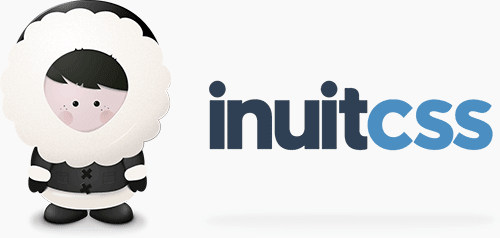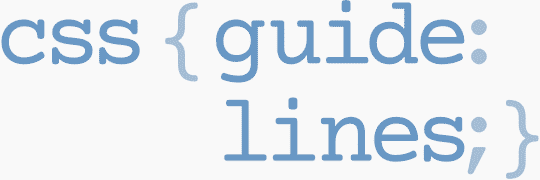By Harry Roberts
Harry Roberts is an independent consultant web performance engineer. He helps companies of all shapes and sizes find and fix site speed issues.
Written by Harry Roberts on CSS Wizardry.
N.B. All code can now be licensed under the permissive MIT license. Read more about licensing CSS Wizardry code samples…
Hey there! Welcome to a brand new CSS Wizardry!
These recent changes are pretty big ones, and this post aims to discuss and explain them all. There’ll be quite a lot… grab a coffee!
There’s no denying that WordPress is pretty awesome; it’s powerful, it’s flexible and it’s free! But it’s just too much. I was at the mercy of WordPress with my last site; updating it was no longer a trivial matter and to develop it required MAMP, a database, a few MB of library code and all manner of other things. This isn’t a bad thing per se, but it was certainly more than I wanted to be dealing with.
I love tinkering, I love building, I love coding, I love Vim and Git and the command line now. As a developer, I don’t love GUIs and CMSs. WordPress was just no fun any more…
I recently discovered Jekyll, a static site generator written on Ruby by Tom Preston-Werner, GitHub co-founder. After seeing what it does and how it works, it felt like the answer; I was already writing posts in markdown using iA Writer and converting it to HTML before dropping it into WordPress’ admin panel, so why not write in markdown full time?
I built inuit.css’ site on Jekyll, it was a lot of fun, and very simple. I knew that I wanted to move CSS Wizardry over to Jekyll too. I used exitwp (with the help of Tom Hudson) to port CSS Wizardry’s WordPress content into Jekyll-friendly markdown format.
I have always hosted CSS Wizardry with NuBlue, an absolutely fantastic host in the UK. However, I was only on a humble shared hosting package with no Git/SSH access. I decided to move hosting over to GitHub Pages which:
I love GitHub, so hosting my site on GitHub Pages and keeping the whole lot in an open repo is great!
I still love NuBlue, and would recommend them to anyone, and I have kept my hosting account with them open so that I can quickly move back at the drop of a hat if I need to.
Now my new workflow means I can write blog posts and publish them without ever leaving Terminal!
Hosting the site on GitHub Pages means it lives in a public repository. This serves a couple of great purposes:
The second is very important to me; the old CSS Wizardry was nasty, because it was behind closed doors, and wasn’t easily accessible for me to work with. By hosting the code so openly it will make me take more pride in it and allow me to work on it much more easily; no excuses now!
There was nothing more embarassing than writing articles about how IDs are the devil’s selector when the old CSS Wizardry was full of them; I have now started practicing what I preach. The code should hopefully be in line with all the things I write and talk about.
Naturally, I rebuilt CSS Wizardry on top of inuit.css, my open source CSS framework. I am super proud of inuit.css, and it was fun building a proper project on top of it. The proof, they say, is in the pudding!
The new site is purposefully low on features. I didn’t want to build too much too soon and end up with a lot more than I needed. I’m taking a kind-of-agile approach with CSS Wizardry now. Instead of building a whole, behemoth WordPress clone, I have decided to launch CSS Wizardry as an MVP (shoot me now…). The rebuild was undertaken quite selfishly; I wanted two things out of the site at its most basic:
This was my MVP, and it has been fulfilled. Features like comments, search, tags and categories will come at a later date; I got my minimum viable product out of the door, and the next jobs will be to build on and extend that. I won’t be working in sprints, but I will amass a backlog and a set of features I would like to include at a later date.
For now, the functionality of the site serves only myself; you can read anything I have written previously, but you might find it hard to search (like I said, I have been a little selfish).
I have decided to remove comments. If I am totally honest, comments were previously a huge chore; it sounds ungrateful but comments – although often excellent and full of information and opinion – were:
I have decided, for now at least, to do away with comments. I still have the data from comments on the old site, so I can reinstate them if/when I decide it is the right thing to do, but for now I have gotten rid.
Unsurprisingly, the transition from WordPress to Jekyll is a pretty massive one, and as such I am fully expecting things to be broken, or not working quite right.
I have some tech tasks on GitHub to address stuff like that, so if you spot anything I would be very grateful if you could raise an issue to help me keep track of things that need tidying up. Like I said, this rebuild is a little selfish in that I don’t care too much, but I will have a task always in the back of my mind to clean things up gradually.
Well, you can grab the new RSS feed, follow me on Twitter and keep an eye on the project on GitHub.
Thanks,
Harry
N.B. All code can now be licensed under the permissive MIT license. Read more about licensing CSS Wizardry code samples…
Harry Roberts is an independent consultant web performance engineer. He helps companies of all shapes and sizes find and fix site speed issues.

Hi there, I’m Harry Roberts. I am an award-winning Consultant Web Performance Engineer, designer, developer, writer, and speaker from the UK. I write, Tweet, speak, and share code about measuring and improving site-speed. You should hire me.
You can now find me on Mastodon.


I help teams achieve class-leading web performance, providing consultancy, guidance, and hands-on expertise.
I specialise in tackling complex, large-scale projects where speed, scalability, and reliability are critical to success.